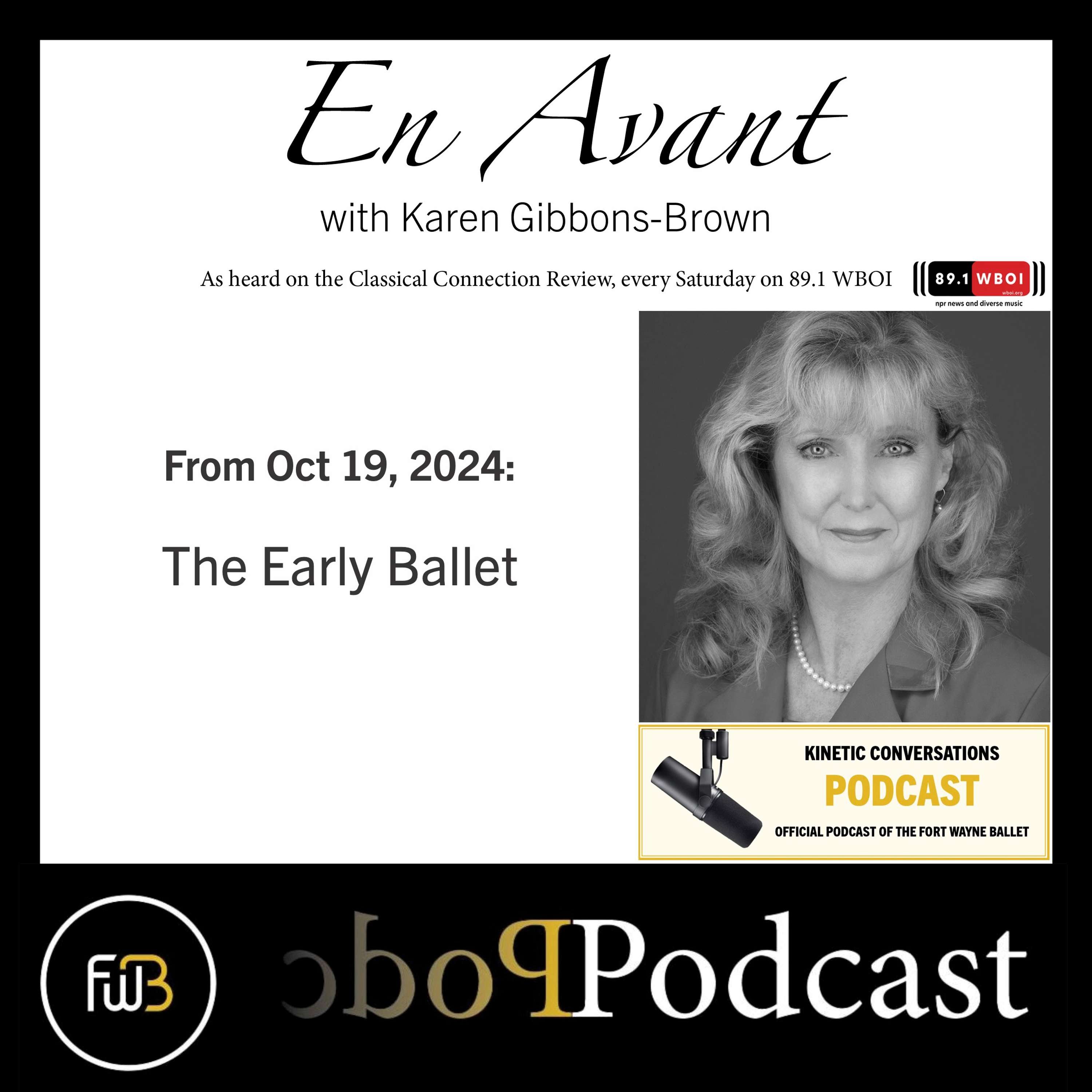En Avant with Karen Gibbons Brown can be heard every Saturday night on the Classical Connection Review on 89.1 WBOI.
Welcome to En Avant, a ballet discussion brought to you by Fort Wayne Ballet and the Kinetic Conversations podcast.I'm Fort Wayne Ballet Artistic Director, Karen Gibbons-Brown.The term ballet is often misunderstood.
The term simply translated means to dance.It happens to be in French because our wonderful King Louis XIV decided to codify a syllabus and put it all in French.
Today, I thought we might explore a little bit about the background of classical ballet and how we got to the point of it being a classical art form that is all in French.In the 14th and 15th centuries, court dancing was very popular.
The queen, Catherine de' Medici or de' Medici, who married King Henry II and moved to France, felt that the French people did not know enough about dance.
So her mission was to make sure that France was brought up to speed, so to speak, with the arts of the world. Some of those names of the court dances remain today in our terminology of ballet.
For instance, pas de pied, step of the feet, or chassé, to slide, or bourrée, small steps.Almost 200 years passed, and King Louis XIV came into his reign at a very young age, and he had many advisors that helped him run the country.
His primary goal at that point in time was fencing, learning to be a gentleman, learning to be the king, and dance.He felt that dance was tremendously important.There was a ballet created for him, translated, Of the Night.
And he was the lead in the ballet, of course, as he was the king, he could dictate that.And he played the part of Apollo, or the Sun King.So that became his title throughout his reign.
The Sun King was a metaphoric title for him because he represented the sun rising on the country of France, the dawn of a new day, so to speak.This ballet took on a form that we don't quite recognize today.
It would be a form similar to a dinner theater.For the royalty of the courts, there would be a dinner, and there would be an act of the ballet.Quite often, the ballets of this particular time lasted several evenings long.You would get an act a night.
King Louis XIV quit performing in the leads of his ballets, but continued to love the art form of dance.So he had some very trusted advisors, specifically Jean-Baptiste Lully and Pierre Beauchamp, who helped him codify a syllabus of dance.
Again, being the king of France, he decided all the terminology should be in French.So as we learn our terms today, we're also learning a bit of the language of the French.
The school that King Louis XIV started was called the Academy of Music and Dance, and it began in 1661.This particular academy didn't last too terribly long.
There was a great amount of infighting amongst the people who were in charge of the organization or the school, so it disbanded and they tried again a few years later. That school is what we now know as the beginning of the Paris Opera Ballet.
Many of us consider the Paris Opera Ballet our sort of mothership to classical ballet.Very few terms have snuck into our terminology from other countries, although there are a few.
So the Center of Dance moved from Italy to France with the King of France, and he was determined to make it the best it could be.It was going to be the place where everybody came to study and learn to dance.
And in fact, many of the ballet masters from the Paris Opera Ballet would actually be sent out to other countries.So our Center of Dance was really the French school. That remained so for several hundred years until we get to the Romantic era.
Our next episode will take us to the rise of the Romantic era of classical ballet.Thank you so much for joining us and we'll look forward to seeing you next time on En Event.
Anna Vaughn is brought to you by Kinetic Conversations, the official podcast of Fort Wayne Ballet.Fort Wayne Ballet is performing Director's Choice, a repertoire set, November 8th and 9th at the Auer Center.
Tickets are available at fortwayneballet.org and the ArtsTix Community Box Office.Kinetic Conversations podcast is available on most audio streaming platforms.
 Sign in
Sign in Sign in
Sign in Sign in
Sign in










